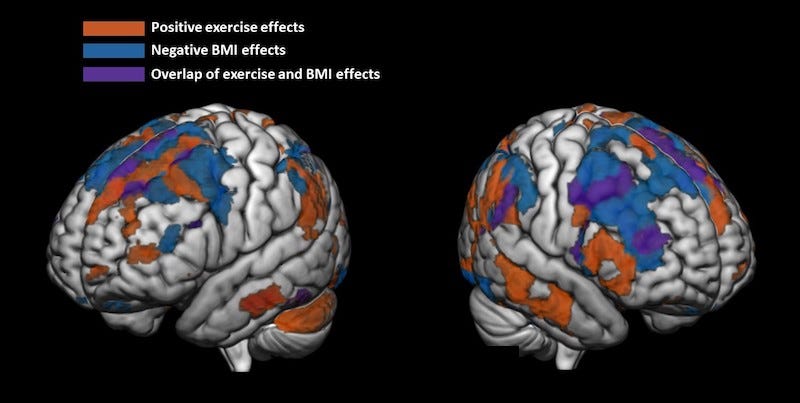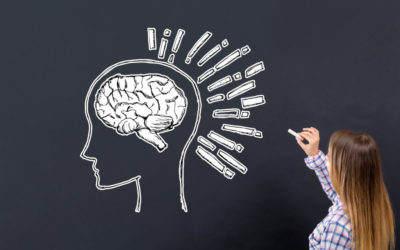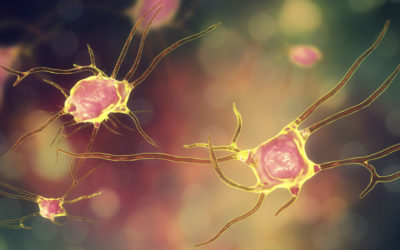Quick Hits
Daily brief research updates from the cognitive sciences

Ok, we all know by now that exercise is good for you. Many of you may also be more than aware that exercise is a potent stimulator for the brain encouraging brain growth and effective functioning. Read my article on brain health here.
Two pieces of research have recently been published which show, however, that not just exercise is good for you, but the timing is essential. Specifically, that exercise in pre-teens predicted the fitness of their brains later and also, by another piece of research, that exercise in childhood predicted healthy adult brains!
So, first off, the study from Boston Children’s Hospital shows that physical activity helps to organise developing brains. This study analysed brain imaging data from almost 6’000 9- to 10-year-olds and found that physical activity was associated with brains that were:
- More efficiently organised
- More robust
- Had more flexible networks
Basically giving kids fitter brains all round and better able to adapt to whatever challenges and cognitive functions come at them. Of note is that it didn’t matter what kind of activity — any physical activity is good.

This then leads us to separate recent study, nicely linking to the above, which looked at childhood pre-teen exercise and cognitive function in later life mapped to MRI data (214 participants aged between 26 and 69). This was conducted by a research group with Professor MATSUDA Tetsuya of Tamagawa University’s Brain Science Institute and Assistant Professor ISHIHARA Toru from Kobe University’s Graduate School of Human Development and Environment.
The results showed that
- People who are physically active during childhood (up to 12 years of age) have higher cognitive functions in later life.
- The positive association between childhood exercise and cognitive function could be seen in the modular segregation of brain networks, strengthened inter-hemispheric connectivity, greater cortical thickness, lower levels of dendritic arborisation and decreased density.
During early childhood the brain is at its most plastic and it seems that exercise optimises the networks and structures that are later used for multiple cognitive functions.
That’s good news, or maybe bad news. Bad news because they couldn’t find an association with cognitive functions and post-childhood physical activity. This is a surprise because there is a lot of research on the positive benefits of exercise — but it could be that these changes are only mild compared to the impacts on a developing child brain which set it up for life.
Got kids? Well, get them exercising!

Andy Habermacher
Andy is author of leading brains Review, Neuroleadership, and multiple other books. He has been intensively involved in writing and research into neuroleadership and is considered one of Europe’s leading experts. He is also a well-known public speaker speaking on the brain and human behaviour.
Andy is also a masters athlete (middle distance running) and competes regularly at international competitions (and holds a few national records in his age category).
Reference
More Quick Hits
Think Like a Kid to Learn Better?
Think like a kid may sound like a good piece of advice – but with some interesting twists…
Those Who Distrust Humans, Trust AI
We probably all know someone who is extremely distrustful of fellow human beings…
Watching TV With Your Child Can Help Cognitive Development
This is another study to show that there is no quick and easy answer to the question of screen time and children…
How Fear Gets Stuck in (Some) Brains
Fear is an important human emotion and essential to survival so not to be underestimated…
Your Brain Switches Between Remembering and Learning
Learning and memory are key functions of the brain and ones that attract a lot of attention and research…
How Daily Rhythms Help Your Brain Grow After Injury
Always nice to know that you brain can grow – and it is still met with surprise when I explain how this can happen…






